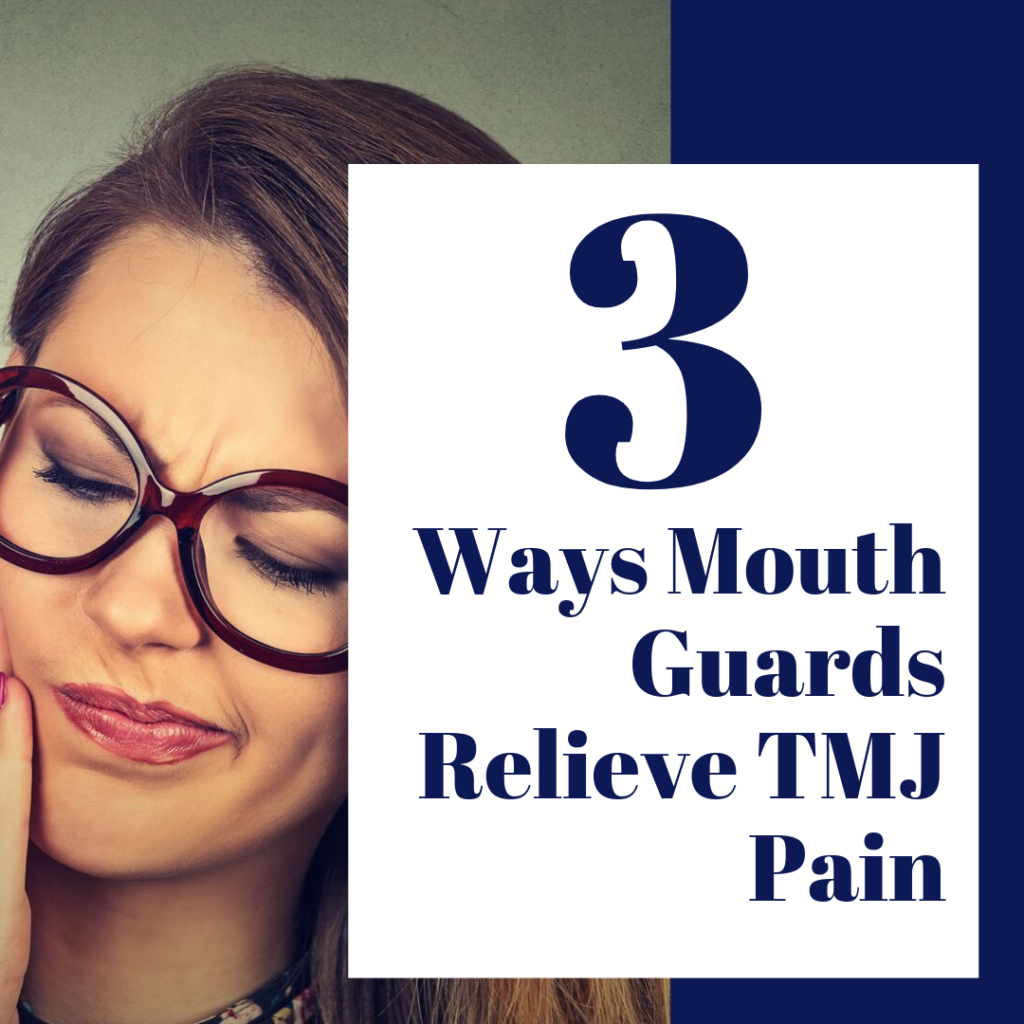Temporomandibular joint disorder, also known as TMJ or TMD, is a condition usually caused by overuse that results in a number of symptoms. Because the TM joint is made up of bone, muscle, tendons, and nerves, it can affect people differently depending on what structures are affected. For more information about TMD, see “TMJ Treatment” or “TMD Basics”.
However one common symptom of TMD is, unfortunately, pain. Pain from TMD most commonly occurs in the jaw, but it can also manifest as headaches, ear aches, sore neck and shoulder muscles, and sore facial muscles. While there are a variety of options for managing TMD pain, one highly effective method is the use of a dental appliance called a mouth guard.
Dental mouth guards, also known as night guards, are hard plastic molds that fit over your teeth. They are commonly worn only at night, which is why some people call them night guards. These appliances can help relieve joint pain in many ways. Here are three ways that mouth guards alleviate TMJ pain:
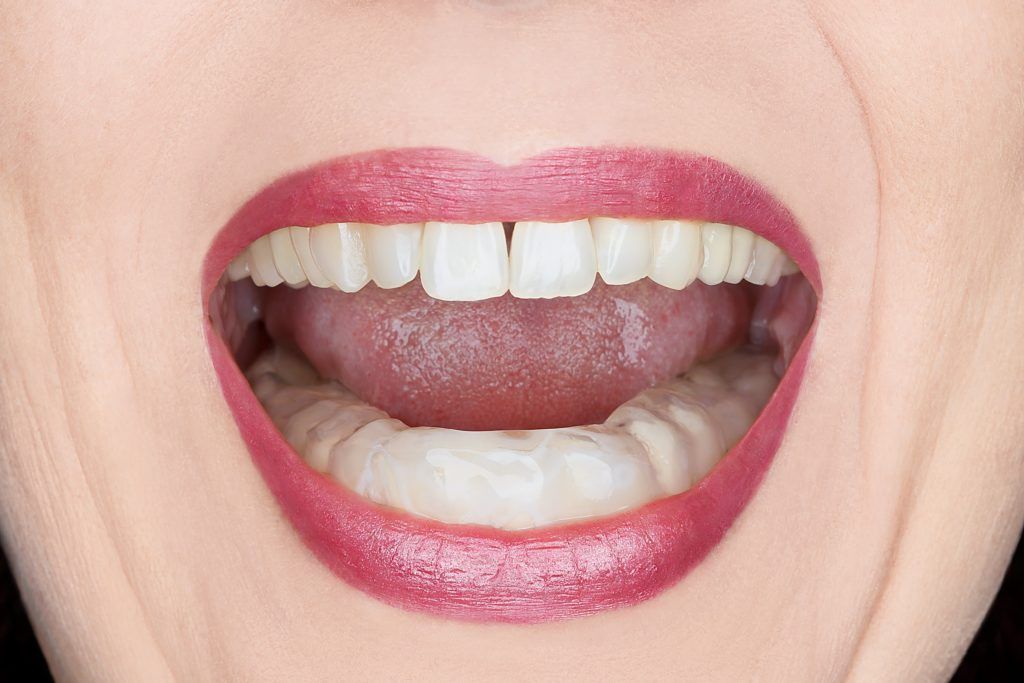

Corrects Mouth Position
The first way that mouth guards help relieve pain from TMD is by maintaining correct mouth position. Especially while sleeping, the mouth may get into a position that places additional strain on the structures of the TM joint. This extra strain will result in pain the next day. By maintaining the proper position, mouth guards allow the structures to relax and rest, which will reduce pain and inflammation.
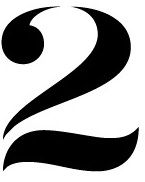
Prevents Teeth Grinding
In addition to keeping the mouth in the proper position, mouth guards also prevent teeth grinding and clenching. Teeth grinding, also known as bruxism, is often caused by stress and generally occurs at night. Because of this, many people don’t even realize that they grind their teeth. Teeth grinding is highly problematic for the TM joint for many reasons. First, teeth grinding at night means that the jaw is unable to rest. Another problems is that the jaw’s normal function is up and down motion, while teeth grinding promotes side to side motion. This places a great deal of strain on the structures and causes inflammation and pain. The position that mouth guards place the mouth in naturally discourages this behavior and prevents damage to the teeth.
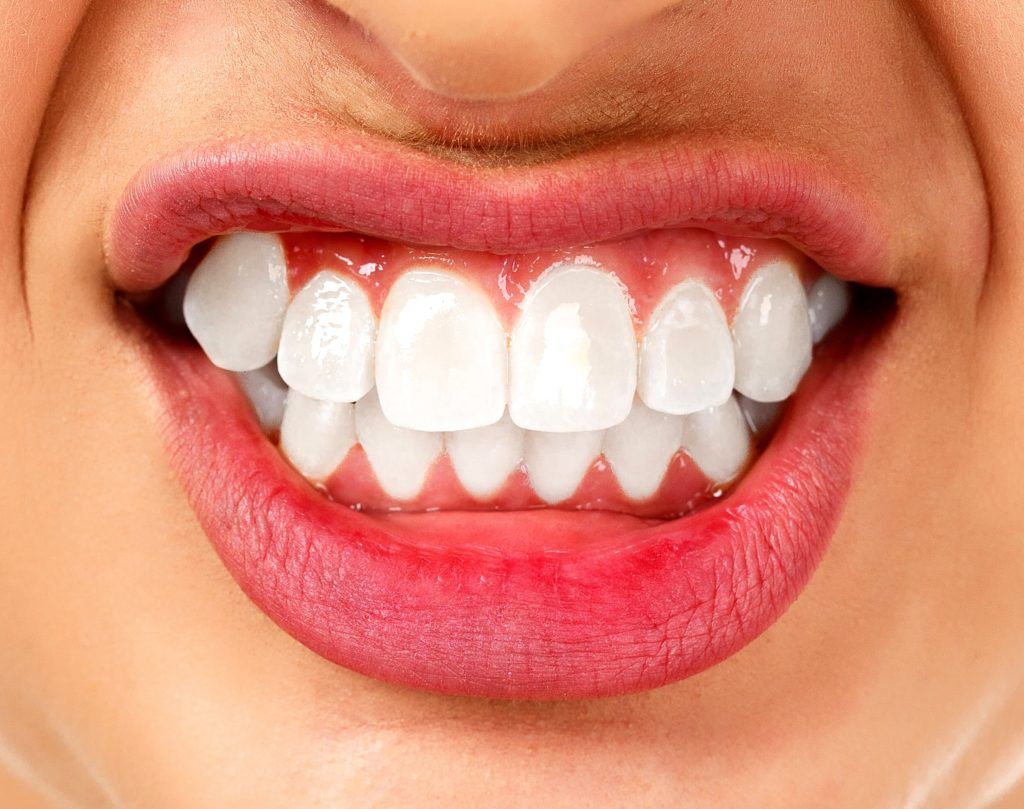
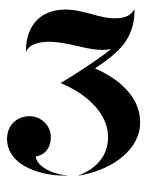
Reduces Teeth Clenching
Mouth guards also prevent teeth clenching. Some people grind and clench, while some only clench their teeth. This can occur both during the day and at night. As with teeth grinding, teeth clenching is often caused by stress. Not only does teeth clenching create muscle tension in the face and jaw, but it exhausts the muscle tissue and damages tooth enamel. Wearing a mouth guard causes the teeth to be unable to clench against each other. This forces the facial muscles and jaw joint to relax, while also preventing damage to the teeth.
Overall, dental mouth guards are a must have for people suffering from TMD. Although there are various other treatments that can be used in combination with mouth guards, a dental mouth guard is one of the first essential treatments to manage symptoms. Even if you haven’t been diagnosed with TMD, mouth guards are a great way to keep your jaw in the best shape for as long as possible.

Dr. Sachdeva Pushpa is a Nairobi dentist who is constantly upgrading her skills by attending hands-on courses internationally. This allows her to provide her patients with the latest dental techniques and technology. In addition to restorative dental treatments, she works to improve the surrounding soft tissues through lip augmentation, reduction of peri-oral lines, narrowing of square jaws, Fillers and Facial Thread lifting. She also uses Botox to reduce the occurrence of Bruxism and to reduce “gummy smiles”.


